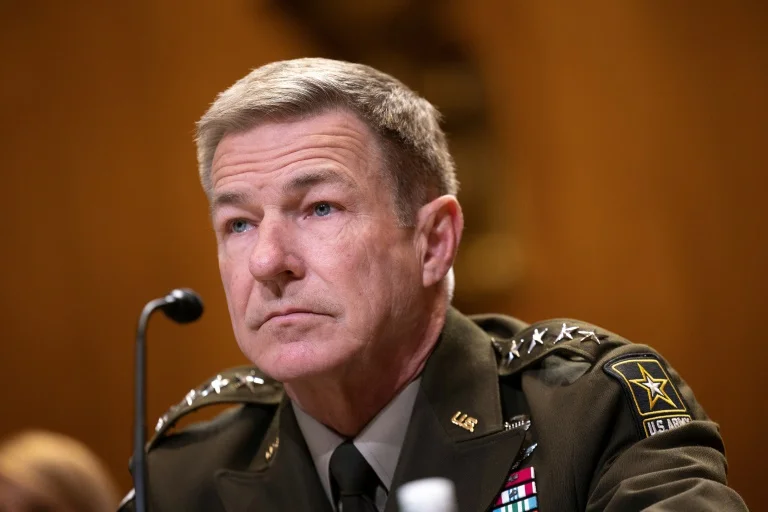In a notable turn of events, the chief of staff of the US Army, General James McConville, has announced his resignation, adding a new layer of complexity to an ongoing challenge. This situation has left a second military branch without a confirmed leader, raising concerns about operational stability.
The backdrop to this predicament lies in a senator’s opposition to measures aimed at allowing troops to access abortion care, which has triggered significant delays in the confirmation process for key Pentagon nominees.
The US Senate is currently evaluating over 300 nominations, including those of prominent military figures chosen to lead vital branches such as the Army and Marine Corps. However, these nominations have been met with a major roadblock as Alabama Republican Senator Tommy Tuberville exercises a “hold” on the process, preventing swift collective approvals and necessitating individual voting on each nominee.
The Pentagon, along with Defense Secretary Lloyd Austin, has voiced deep concerns about the cascading consequences of these delays. The absence of Senate-confirmed leadership for two key military services is unprecedented in the history of the Department of Defense. This issue has far-reaching implications, impacting military readiness, the retention of experienced officers, and the well-being of military families whose lives are intertwined with these leadership changes.
The Pentagon has also highlighted the real-world impact of these confirmation delays on military families. The uncertainty surrounding their postings directly affects crucial decisions like their children’s education and overall planning for the future.
As General McConville’s tenure as chief of staff comes to an end, the nomination of General Randy George as his successor remains pending confirmation. This situation has led to an intricate arrangement where General George would simultaneously fulfill the roles of vice chief of staff and chief of staff.
At the heart of this complex situation is the contentious issue of abortion care access for troops. The US Supreme Court’s landmark ruling in June 2022 eliminated the nationwide right to abortion, leading to the need for travel to areas where it remains legal. In response, Defense Secretary Austin introduced policies allowing service members to take administrative absences for “non-covered reproductive health care.” However, Senator Tuberville has vehemently opposed these efforts, claiming they are unlawful and vowing to impede the approval of senior officers and Defense Department civilian officials until this stance is reversed.
The challenges posed by this situation are expected to intensify as more high-ranking officers depart from their positions. With the recent resignation of the US Marine Corps commandant and impending departures of key figures like Chief of Naval Operations Admiral Mike Gilday and Chairman of the Joint Chiefs of Staff General Mark Milley, the urgency to address these issues and restore stable military leadership becomes even more critical in a rapidly evolving landscape of policy concerns.




